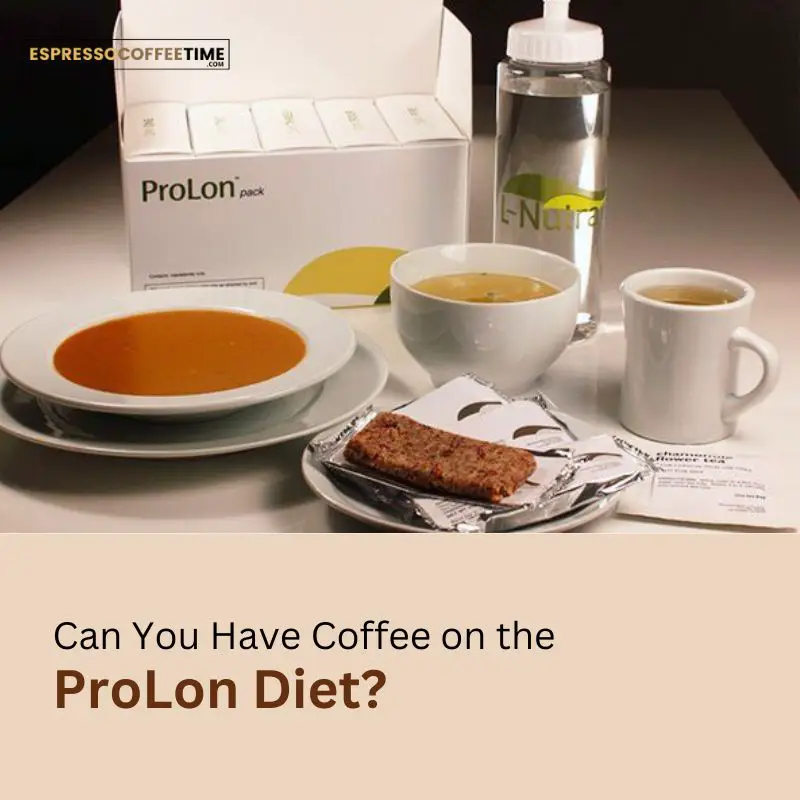Last Updated on November 14, 2023 by Timothy Byron Smith
So, you’ve decided to embark on the ProLon diet journey, but there’s one burning question on your mind – can you still savor your morning cup of coffee? The good news is, yes, you can! Let’s dive into a comprehensive guide that not only answers your coffee-related queries but also sets you up for success on the ProLon diet.
ProLon – More Than Just a Diet
Before we unravel the mysteries of coffee on ProLon, let’s understand what ProLon is all about. It’s not your typical diet pill or crash diet; instead, ProLon offers five-day or single-day dietary programs designed to nourish your body and enhance overall health. The program revolves around a meal plan featuring plant-based, GMO-free, and gluten-free products, providing a unique spin on fasting diets with delicious and nourishing foods.
Can You Drink Coffee on ProLon?
Absolutely! You don’t have to bid farewell to your beloved coffee. ProLon allows you to indulge in a daily cup of coffee, provided you keep it under 140 mg of caffeine and refrain from adding any creamer or milk.
How Much Coffee Can You Have?
The golden rule is to stay within the 140 mg caffeine limit, which translates to about 8 to 12 ounces of coffee per day. So, if you’re accustomed to guzzling multiple cups, prepare yourself for a mindful daily caffeine intake.
Decaf Dilemma
For those who prefer a coffee flavor without the caffeine kick, decaf is a viable option on ProLon. The same caffeine limit applies, giving you the freedom to enjoy decaf without disrupting your fasting-like experience.
How Not to Drink Your Coffee on ProLon
While you can embrace your coffee ritual, there are a few rules to follow. Black coffee is your go-to, but say no to creamers or milk. Stevia is the lone sweetener allowed – keep it simple to preserve the integrity of your fasting journey.
Why the Caffeine Caution?
ProLon’s caution about caffeine stems from its impact on the PKA pathway. Exceeding the 140 mg limit can stimulate this nutrient-sensing pathway, potentially hindering the results you aim to achieve with ProLon. So, moderation is key to unlocking the full benefits of the program.
Consequences of Excessive Coffee
Going beyond the 140 mg caffeine limit might leave you feeling extra jittery. While serious side effects are unlikely, it’s best to adhere to the recommended caffeine intake to ensure ProLon works as intended.
Preparation for Reduced Caffeine Intake
If you’re a caffeine connoisseur, consider gradually reducing your intake a week before starting the five-day ProLon program. This gentle transition helps your body acclimate to lower caffeine levels, minimizing potential side effects like headaches and fatigue.
Frequently Asked Questions
Q1. Will Milk in My Coffee Affect ProLon?
Yes, it will. ProLon operates on a fasting-like principle, and any addition of milk or creamer disrupts this plan and may impede your progress.
Q2. What Drinks Are Allowed on ProLon?
Water is your essential companion on ProLon. Additionally, zero-calorie beverages like herbal teas are permissible, and yes, coffee is allowed but in moderation.
In Conclusion
In summary, the ProLon diet allows you to continue enjoying your cup of coffee, albeit with certain guidelines. Keep it black, stay within the caffeine limits, and avoid the temptation to add cream or milk. By understanding the rationale behind these rules, you’re better equipped to navigate the ProLon journey successfully.
So, go ahead, savor that cup of joe, and embark on your ProLon adventure with confidence. Your coffee ritual can coexist harmoniously with the ProLon diet, bringing you one step closer to your health and wellness goals. Cheers to a flavorful and fulfilling ProLon experience!
Also Read:


